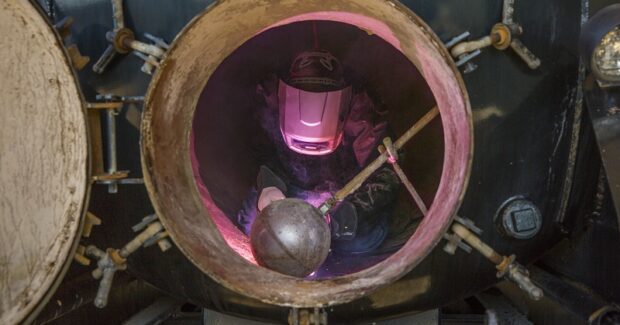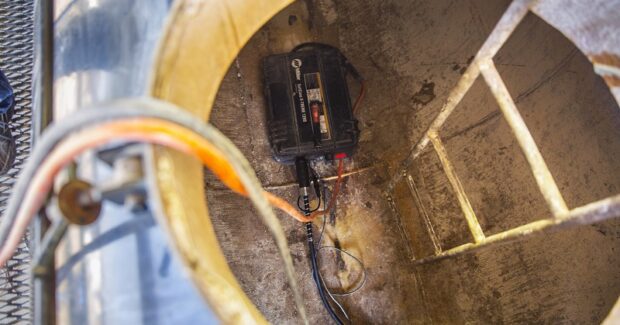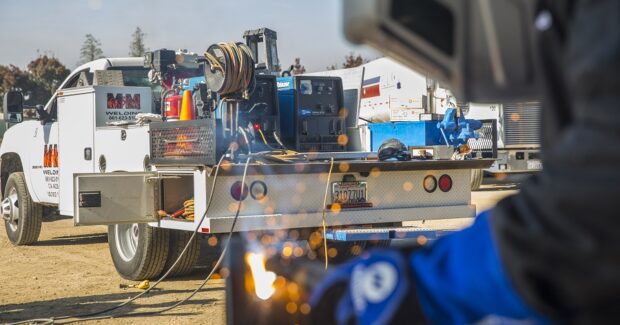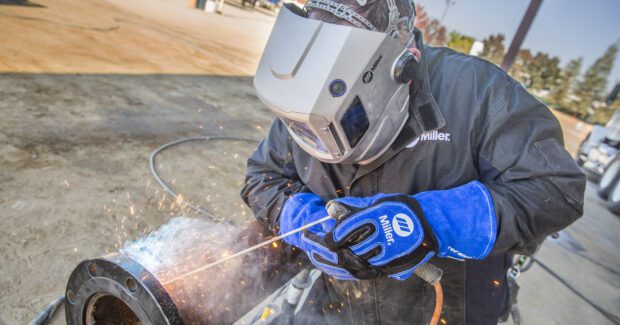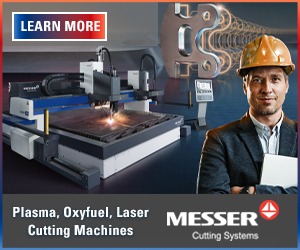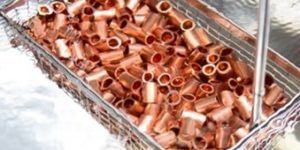Tackle Different Challenges on the Jobsite With a Welder/Generator
Wasted time and lost productivity are enemies in any welding operation, especially in harsh conditions, on large jobsites or in applications where it’s difficult for operators to get to where the work must be done. The right welder/generator system, equipped with advanced technologies, can help complete work faster while also improving quality and safety.
Posted: October 7, 2019
M&M Welding is a California-based operation that specializes in industrial welding for vacuum trucks and tanks, food processing plants, mining operations and custom projects. Owned by Mark and Melissa Upshaw, the company has its own shop, but primarily completes mobile welding projects, traveling to customer locations and jobsites for maintenance and repair work. The type and thickness of the material being welding can vary greatly, from 10 ga or 14 ga aluminum to 2 in thick carbon steel. Stainless steel is common in many of the chemical plants and food processing plants where M&M Welding works. Depending on the job, their welders may need to use shielded metal arc welding (SMAW, or stick), gas metal arc welding (GMAW, or MIG), gas tungsten arc welding (GTAW, or TIG) or flux-cored arc welding (FCAW).
Customer applications often involve critical welds that require high control of the welding arc to produce the highest quality weld possible for the situation. But it’s also important for M&M to finish the work quickly and efficiently, since plants may be in scheduled shutdowns or tanker trucks may be taken out of service and cannot be back on the road until repairs are completed. This makes it important for M&M welders to have versatile welding equipment that helps them tackle whatever jobs – and whatever types of material – they may encounter.
MAXIMIZING VERSATILITY WITH WELDER/GENERATORS
Different jobsites and welding applications pose different challenges, but the demand for safety, productivity and quality remains. M&M Welding uses service trucks equipped with Trailblazer® 325 engine-driven welder/generators to help complete a wide range of jobs. Whether it’s making a repair at a cement plant or fixing a broken part on a tanker truck, the work crew can go where the work needs to be done with a welder/generator. Instead of carrying around several machines, a multi-process welder/generator allows these operators to switch between welding processes for whatever the application requires. The crew can run wire feeders off a welder/generator for wire feed welding processes in the field or on a jobsite. They can also use the machine’s generator to power other tools and lights for the job.
WELDER/GENERATOR TECHNOLOGIES
So, what do the Upshaws look for in a welder/generator to help their operation save time and produce high quality welds for their customers?
- Complete control of weld parameters at the joint: Some jobs require the welders to climb inside of vacuum tanks to make repairs (WARNING: Confined spaces can be hazardous. See ANSI Z49.1 Safety in Welding and Cutting before entering confined spaces.) Getting in and out of the tanks – through a manhole that is typically 14 in to 20 in wide – is tricky. Reducing the number of times an operator must crawl in and out of the tank to make parameter adjustments saves time and improves operator safety by reducing trip and fall hazards. A welder/generator that delivers complete control of welding parameters and processes at the point of the weld via a remote control or a wire feeder with remote voltage control capability can save significant time for the crew, which can add up to hours per day.
- Decreased fuel usage: Some engine-driven welder/generators include additional technologies that help lower overall costs and save fuel. Technology on the Trailblazer 325 responds to the weld requirements by automatically adjusting engine speed to one of four rpm levels, rather than operating at the maximum 3,600 rpm regardless of the load demand. Operating at the engine speed required by the job keeps the engine from working harder than necessary, saving fuel and ultimately money. Another way to improve fuel efficiency and maximize profits is to choose a welder/generator with electronic fuel injection (EFI), a technology that provides faster, more-reliable starts in any weather and delivers up to 42 percent greater fuel efficiency. Combining these technologies can significantly reduce the fuel required per day per welder/generator, additionally reducing the time (labor cost) to refill the tanks.
- Reduced jobsite noise: When the engine drive runs quieter in idle, it allows workers on the jobsite to communicate much easier. In addition to improving comfort for those who work around the machines all day long, reducing the engine noise may even allow a jobsite to work during hours restricted by noise levels should they fall under the jobsite noise requirements.
SAVING TIME AND MONEY WITH WELDER/GENERATORS
Wasted time and lost productivity are enemies in any welding operation, especially in harsh conditions, on large jobsites or in applications where it’s difficult for operators to get to where the work must be done. The team at M&M Welding looks for technologies and equipment to help them work smarter. The right welder/generator system, equipped with advanced technologies, helps them complete work faster while also improving quality and safety.





